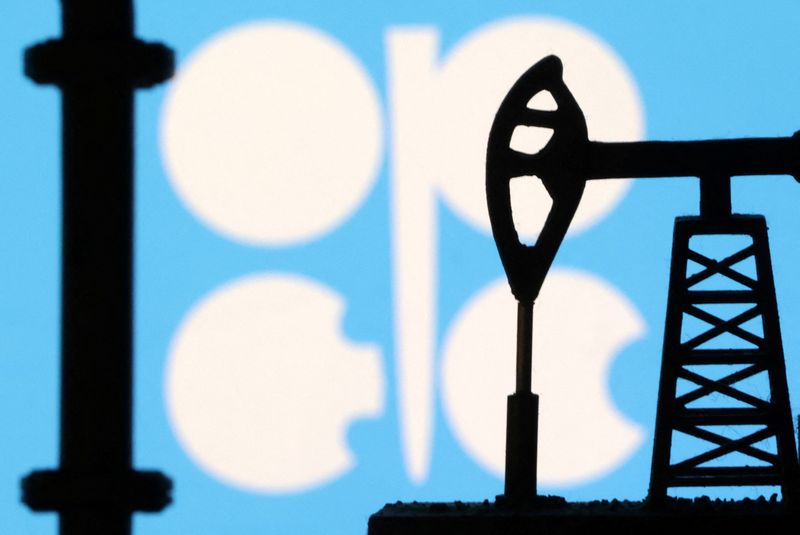By Alex Lawler
LONDON (Reuters) - OPEC oil output fell last month, a Reuters survey found on Monday, reflecting lower exports from Iraq and Nigeria against a backdrop of ongoing voluntary supply cuts by some members agreed with the wider OPEC+ alliance.
The Organization of the Petroleum Exporting Countries pumped 26.42 million barrels per day (bpd) last month, down 50,000 bpd from February, the survey, based on shipping data and information from industry sources, found.
Several members of OPEC+, which includes OPEC, Russia and other allies, made new cuts in January to counter economic weakness and increased supply outside the group. Producers agreed last month to keep them in place until the end of June.
An OPEC+ panel of key ministers meets on Wednesday to review the market and members' production, and is not expected to recommend any policy changes ahead of the group's next full meeting set for June 1.
The biggest output reductions in March came from Iraq and Nigeria, the survey found.
Iraq last month promised to lower exports to make up for pumping above its OPEC target, a pledge that would cut shipments by 130,000 bpd from February. The 50,000 bpd cut in March, according to the survey, leaves more to do in later months to meet the pledge.
Nigerian production also declined, with exports falling more sharply according to some ship trackers as the Dangote refinery took in more cargoes.
OPEC fell about 190,000 bpd short of its targeted cuts in March, largely because of Iraq, Nigeria and Gabon pumping more than they had aimed for, the survey found.
Gulf producers Saudi Arabia, Kuwait and the United Arab Emirates each kept output close to their voluntary targets, the survey found, as did Algeria.
Output in Iran, exempt from quotas, edged lower, the survey found. Iran is still pumping near a five-year high reached in November after posting one of OPEC's biggest output increases in 2023 despite U.S. sanctions still in place.

There was no significant rise in output from any OPEC country last month, according to the survey. Libya, also exempt from quotas, pumped an extra 20,000 bpd as the country's output returned to normal after disruption in February.
The Reuters survey aims to track supply to the market and is based on shipping data provided by external sources, LSEG flows data, information from companies that track flows - such as Petro-Logistics and Kpler - and information provided by sources at oil companies, OPEC and consultants.